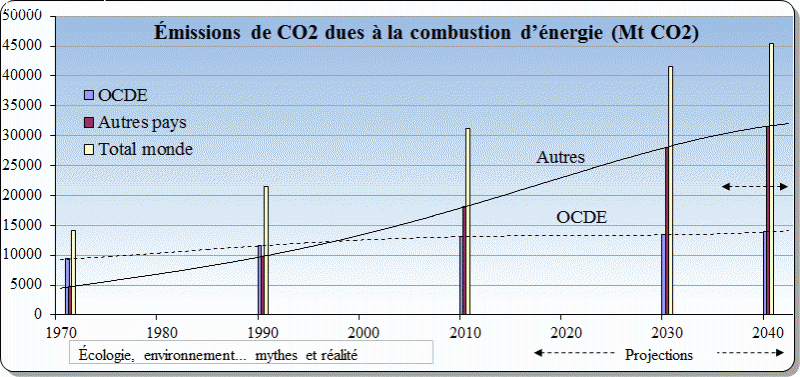Pierre Yves wrote:It is perfectly true that some Terrien consume more, much more, than others. But there is no mistake in saying that all consume more and more energy.
It can even move the knife into the wound, adding that it is the poor and emerging countries that grow the most in CO2. Which is desirable and normal. See this diagram, on my website, http://ecologie-illusion.fr/ .
According to International Energy Outlook 2013 and OECD Factbook 2011-2012.
We manage to make the diagrams say what we want!
The diagram on page 1, using very large aggregates (OECD on the one hand, i.e. 34 "liberal" countries roughly the most developed - excluding China and India, in particular ; other countries on the other side, including China and India therefore) ... creates a little confusion ...
In addition, reference should be made to emissions per inhabitants. It is a bit tendentious to compare China or India to France, Germany or Canada! It's a bit like comparing bladders and lanterns ...
Note that a significant part of Chinese emissions comes back to us, via the gray energy contained in products made in China!
If we want to generalize the “American-European-Australian” way of life, we have to imagine a planet with each inhabitant that emits between 15 and 20 tonnes of CO² of fossil origin per year! That is 7,3 billion X let's take 15 tons = roughly 100 billion tons.
We are at 39 billion ... And it heats up !!!
So my answer remains:
a) our view cannot be generalized without exploding the planet
b) and without drastic restrictions with us, we are nothing but bastards and hypocrites!




